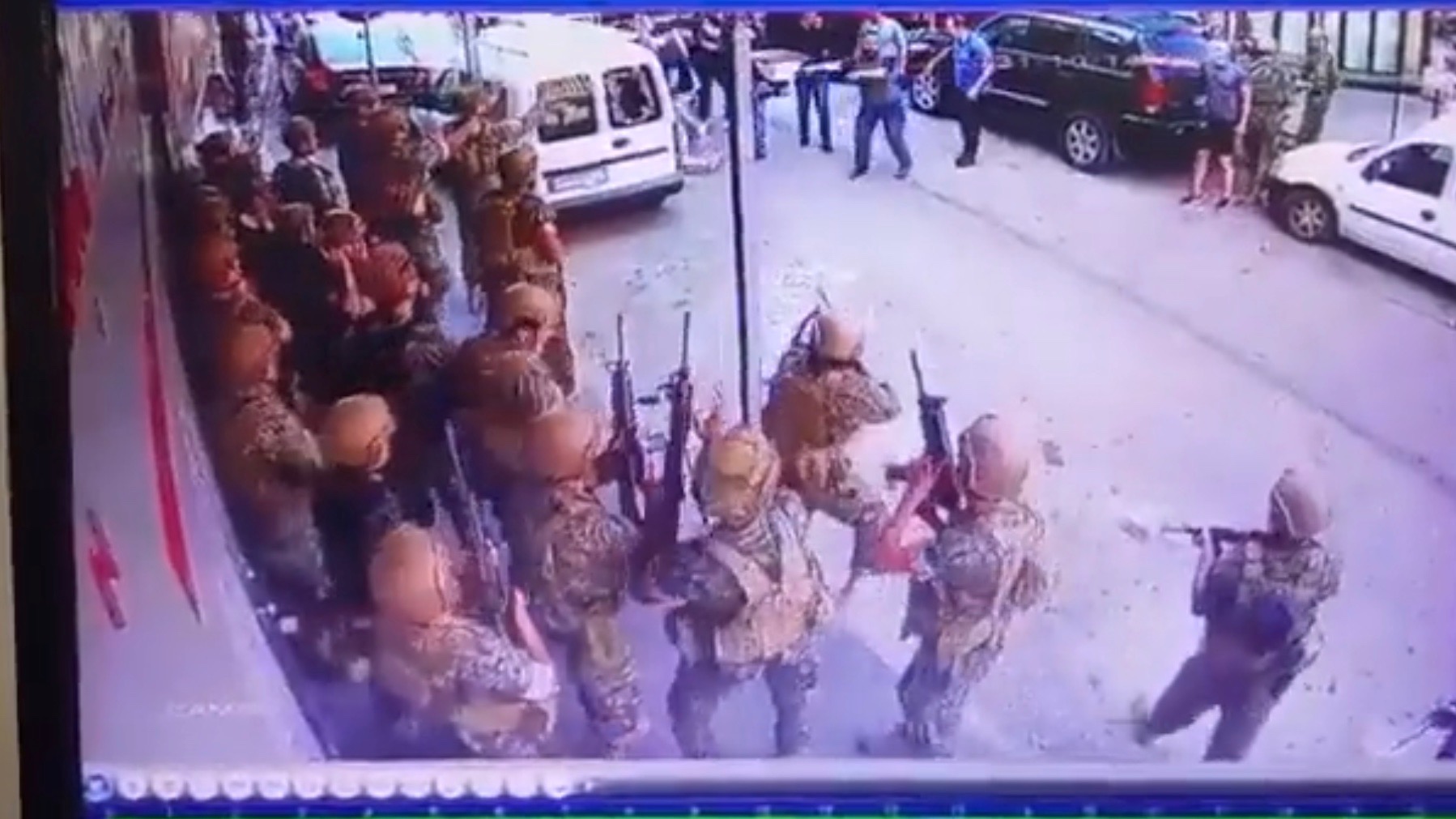The Lebanese army said on Sunday, October 17 that it is investigating one of its soldiers who was seen shooting at protesters in Beirut last week. On October 14, seven people, including a woman, were killed and dozens were wounded when gunmen attacked a protest in the city’s Tayouneh area.
The protests were organized by Hezbollah and the Amal party to demand the removal of judge Tarek Bitar, who is investigating last year’s Beirut port blast that killed more than 200 people and injured thousands of others. The blast also destroyed a large part of Beirut city, making thousands of people homeless. Protesters accuse Bitar of being biased against members of Amal and trying to frame them.
When the protesters entered the Tayouneh area while marching towards the Palace of Justice, they were fired at from nearby rooftops. Though Hezbollah and Amal blamed militias belonging to the conservative Lebanese Forces group for the shooting and demanded immediate action, a video of an soldier shooting at protesters has gone viral on social media. Following the viral video, several groups including Hezbollah, demanded the resignation of army chief General Joseph Aoun.
The army had announced on Saturday that the person involved in the shooting had been arrested, and issued a statement on Twitter on Sunday saying that “it is important for the army to clarify that the shooter is subject to investigation under the supervision of the competent authority.”
Fear of civil war
Several Lebanese, including journalist Rania Khalek, have accused the head of the Saudi-backed Lebanese Forces, Samir Geagea, of trying to re-start the civil war in the country with provocative acts like Thursday’s attacks on Hezbollah and Amal. Some commentators equated the shooting with the Al-Rammaneh bus massacre of April 1975, which led to the beginning of a decade-and-a-half-long civil war in the country, and demanded Geagea’s immediate arrest.
Collaborating with israel to massacre thousands of Palestinians, Christians, Muslims, Armenians.. This is who he Samir Geagea is. And this week's shooting in Beirut was another in a long list of atrocities by his fascist militia. https://t.co/g3A0YBypZG
— Richard Medhurst (@richimedhurst) October 16, 2021
Lebanese politics has long been divided along political and sectarian lines, with some of the political groups also maintaining their own armed militias. The country is facing an unprecedented economic and political crisis with rising poverty, unemployment and rise in prices of essential commodities, including medicines, making them out of reach of the common people.
Lebanon is also facing acute political instability. A demonstration was taken out on Sunday to mark the second anniversary of the popular demonstrations that started in October 2019 to demand systemic changes, including the end of sectarian quotas in government. The protests had forced the Saad Hariri government to resign after which Lebanon had no formal government for almost a year. The new government formed last month under the leadership of Najib Mikati has been unable to take any decisive policy intervention due to its attempt to balance between competing parties.
The government’s inability to take clear decisions was visible after it failed to decide on Bitar and even tried to play a neutral role after the October 14 shooting. Newly appointed defense minister Maurice Selim in a statement published in the National News Agency (NNA) on Monday even denied that the shooting was an attack, but called it an “ominous accident”. He also dismissed demands for the resignation of the army chief and judge Bitar.





